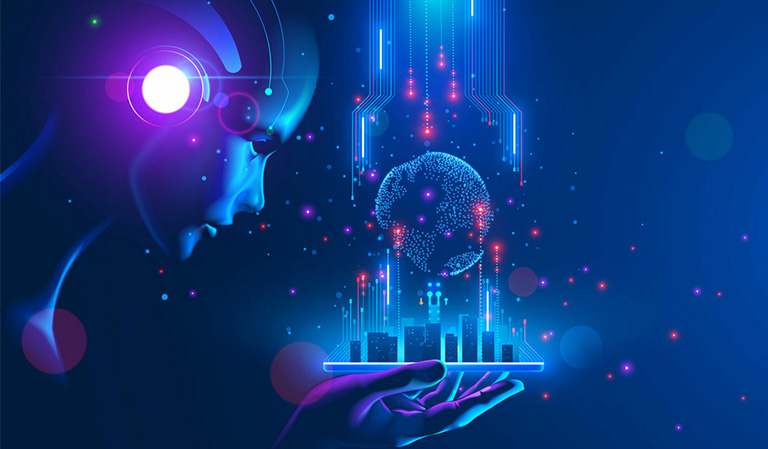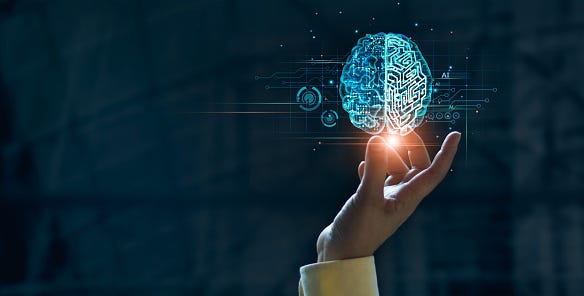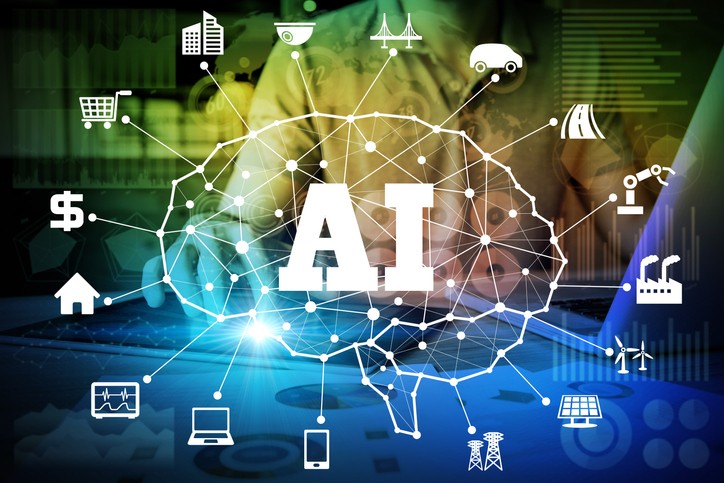Artificial Intelligence (AI) is no longer a distant futuristic concept; it is already transforming our world in profound ways. From virtual assistants like Siri and Alexa to more complex systems such as self-driving cars and advanced healthcare diagnostics, AI is permeating every industry. But as AI continues to evolve, so too does its influence on our future. In this article, we will explore how AI will shape the future, focusing on the rise of autonomous systems, its potential benefits, and the ethical challenges it presents.
Understanding Artificial Intelligence
Before diving into its future impact, it’s essential to understand what AI is. AI refers to machines or software that can mimic human intelligence. These systems can learn from data, recognize patterns, make decisions, and even perform tasks without human intervention. AI technologies encompass a wide range of applications, from simple automation to advanced machine learning (ML) and deep learning (DL) algorithms that power modern innovations.
The Evolution of AI: From Automation to Autonomous Systems
AI has already come a long way from simple automation. Now, we are moving toward a future dominated by autonomous systems—machines and software capable of making complex decisions on their own. Here are some key areas where autonomous AI systems are poised to make a significant impact:
1. Autonomous Vehicles
Perhaps one of the most high-profile developments in AI is the rise of autonomous vehicles. Companies like Tesla, Waymo, and Uber are working toward fully self-driving cars that can navigate without human input. Autonomous vehicles are expected to revolutionize transportation, making it safer, more efficient, and accessible.
In the future, autonomous systems could extend beyond cars to include autonomous drones, ships, and even air taxis. These innovations have the potential to reduce traffic accidents, lower carbon emissions, and change how goods and people are transported globally.
2. AI in Healthcare
Healthcare is another field where AI is expected to have a transformative impact. AI-powered diagnostic tools can analyze medical images, detect diseases at an early stage, and recommend personalized treatment plans. Robots and AI-assisted surgeries are becoming more precise, reducing the risks associated with human error.
In the future, AI could play a more significant role in drug discovery, the development of personalized medicine, and even managing global health crises, as we saw during the COVID-19 pandemic with AI-driven models helping to predict virus spread and optimize vaccine distribution.
3. AI in Finance
The financial sector has already embraced AI for fraud detection, algorithmic trading, and customer service through AI-driven chatbots. Moving forward, AI will continue to shape the future of finance by making markets more efficient and secure.
Autonomous financial advisors, also known as robo-advisors, are likely to become more sophisticated, offering personalized investment strategies based on AI-driven analytics. In addition, AI’s predictive power could help identify potential economic risks, such as market bubbles or recessions, with greater accuracy.
4. AI in Manufacturing and Industry
The future of AI in manufacturing promises smarter factories powered by automation and predictive maintenance. AI systems can monitor machinery for signs of wear and tear and make real-time adjustments, preventing costly downtime. In industries like construction and agriculture, AI-powered robots could perform tasks that are too dangerous or monotonous for humans.
As AI continues to develop, the concept of “Industry 4.0” will take shape, characterized by fully automated production lines where machines communicate and make decisions autonomously. This will improve efficiency, reduce waste, and cut production costs.
The Ethical Considerations of AI’s Future Impact

While the potential benefits of AI are immense, its rapid advancement brings several ethical challenges that must be addressed to ensure a future where AI is used responsibly and fairly. Here are some of the most pressing ethical concerns associated with AI:
1. Bias in AI Algorithms
One of the most significant ethical concerns surrounding AI is bias in algorithms. AI systems learn from the data they are fed, and if that data is biased, the AI will likely produce biased outcomes. This can lead to discrimination in areas like hiring, lending, and law enforcement. For example, facial recognition software has been shown to have higher error rates for people of color, leading to wrongful arrests in some cases.
In the future, ensuring fairness and reducing bias in AI systems will be crucial. This could involve creating more transparent algorithms, improving the diversity of data sets, and implementing regulatory measures that ensure accountability.
2. Job Displacement and Economic Inequality
Another ethical challenge is the potential displacement of jobs due to AI automation. While AI can enhance productivity, it also poses a threat to jobs that involve repetitive tasks. Industries such as manufacturing, retail, and transportation are already seeing automation reduce the demand for human labor.
As AI takes over more roles, the risk of increasing economic inequality becomes a concern. Governments and organizations will need to develop strategies to manage this transition, which could include re-skilling workers, implementing universal basic income (UBI), or creating new roles that complement AI technologies rather than replace human workers.
3. Data Privacy Concerns
With AI systems processing vast amounts of data, privacy is an ongoing concern. AI relies on access to personal information to function effectively, but this raises questions about how much control individuals have over their own data. If AI continues to collect and analyze personal data without strict safeguards, it could lead to breaches of privacy and misuse of information.
In the future, stricter data privacy regulations and more robust security measures will be necessary to protect individuals’ rights in an AI-driven world.
4. Accountability and Transparency
As AI systems become more autonomous, questions arise regarding accountability. If an AI system makes a mistake, who is held responsible—the programmer, the user, or the company that deployed it? This lack of clarity around accountability is particularly concerning in high-stakes applications, such as autonomous vehicles or medical diagnostics.
To address this, future regulations and policies must define clear lines of responsibility and ensure that AI systems are transparent in their decision-making processes.
5. AI and Human Autonomy
One of the deeper ethical questions is how much autonomy humans should cede to AI systems. While AI can make decisions more efficiently than humans in some cases, there is a risk of over-reliance on machines, especially in critical areas like military operations or healthcare.
As AI continues to evolve, striking a balance between human control and machine autonomy will be crucial. Ethical frameworks need to be developed to ensure that humans retain the final say in decisions that have significant consequences for society.
The Role of Governments and Institutions in Shaping AI’s Future

Governments, regulatory bodies, and educational institutions will play a key role in shaping the future of AI. Here are some areas where proactive governance and policy will be essential:
1. Creating AI Regulations and Policies
Policymakers need to establish clear guidelines that govern the development and use of AI systems. This includes ensuring transparency, setting standards for algorithmic fairness, and defining legal liability in the case of AI failures. Governments will also need to regulate industries that deploy AI to ensure ethical use and prevent the abuse of technology.
2. Promoting AI Education and Awareness
To prepare the workforce for an AI-driven future, educational institutions must focus on developing programs that teach AI literacy. This means not just training future AI developers, but also educating the general population on how AI works, its benefits, and its risks. A more informed public will be better equipped to participate in discussions around AI policy and ethics.
3. Encouraging Public-Private Partnerships
Governments, tech companies, and research institutions must collaborate to ensure that AI is developed responsibly. Public-private partnerships can help fund research into ethical AI, promote transparency in AI development, and ensure that AI innovations are used for the public good rather than for profit alone.
Conclusion
The future of artificial intelligence is incredibly promising, with the potential to revolutionize industries, enhance productivity, and improve the quality of life for people worldwide. However, as we embrace this technology, it is crucial to address the ethical challenges it presents, from bias in algorithms to job displacement and data privacy concerns.
By fostering collaboration between governments, businesses, and the public, we can harness the power of AI while ensuring that its development is ethical, transparent, and inclusive. As autonomous systems become a staple in our everyday lives, the way we address these ethical issues will determine whether AI becomes a force for good or a source of societal division.
FAQs
1. How will AI impact the job market in the future?
AI is expected to automate many repetitive jobs, leading to potential job displacement. However, it will also create new roles in AI development, management, and sectors that complement AI technology.
2. What industries will be most affected by AI?
Industries such as healthcare, transportation, finance, and manufacturing will see the most significant impact from AI, particularly in areas like automation, data analysis, and personalized services.
3. How can we ensure AI is developed ethically?
Ensuring ethical AI development involves creating transparent algorithms, reducing bias, enforcing regulations, and promoting diversity in data sets used to train AI systems.
4. Will AI replace human decision-making?
While AI can assist in decision-making, it should not replace human judgment entirely. A balance between human and AI decision-making is essential, especially in critical areas like healthcare and law enforcement.
5. What are the risks of relying too much on AI?
Over-reliance on AI can lead to reduced human autonomy, increased risk of data privacy breaches, and potential discrimination if AI systems are biased. It’s essential to maintain human oversight in AI applications.










